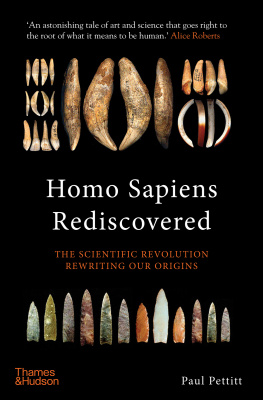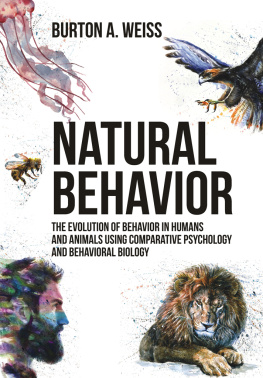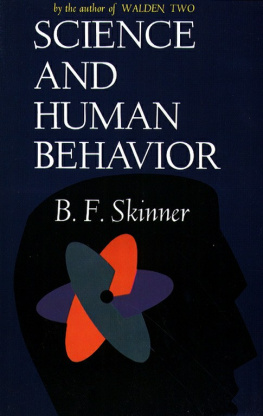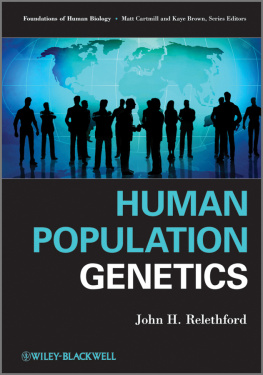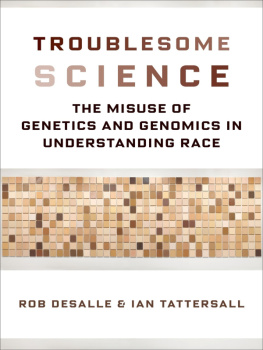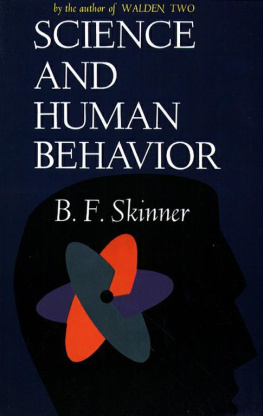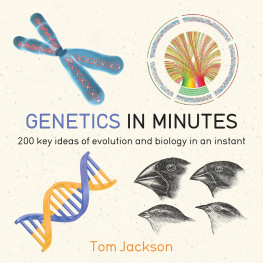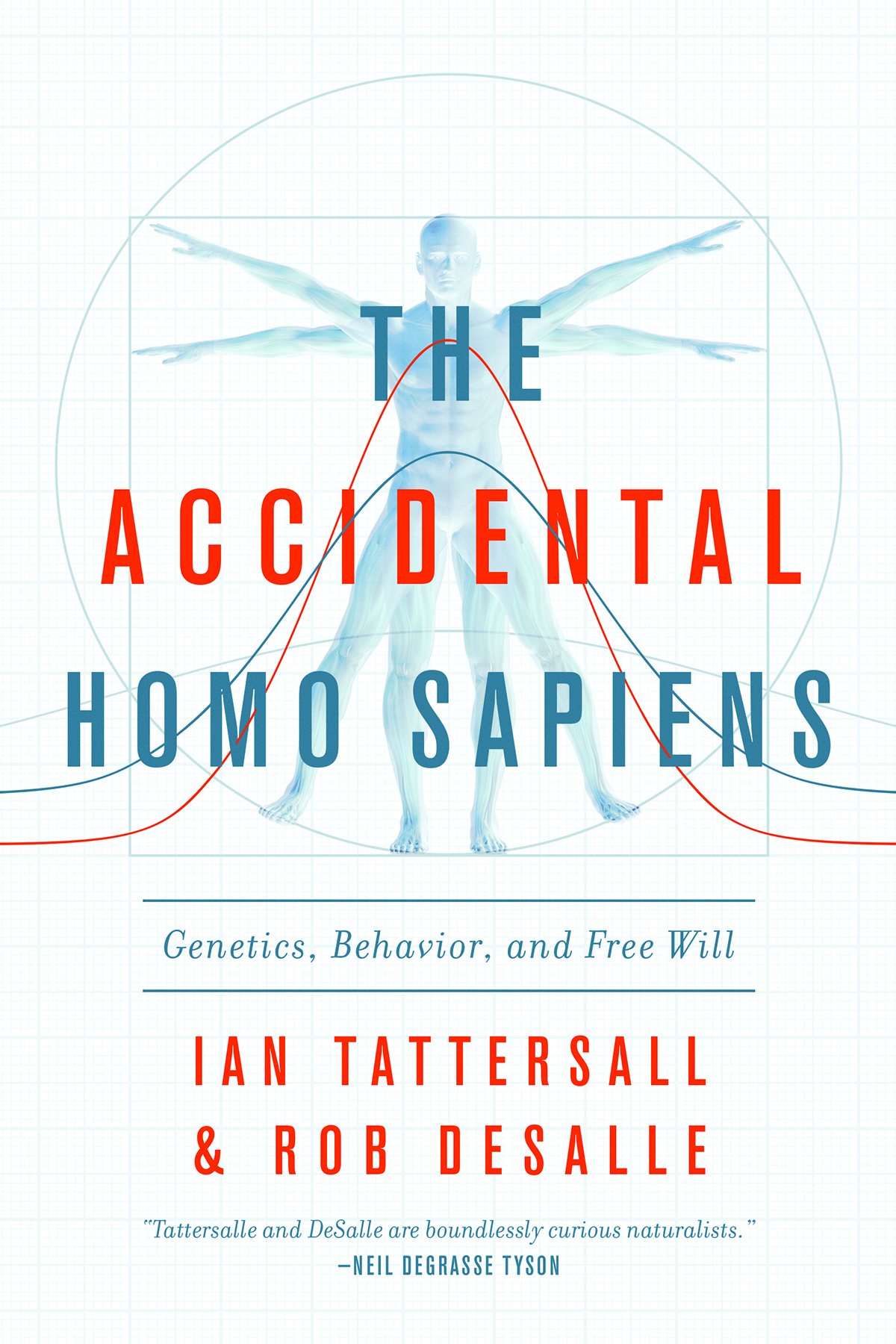Contents
Guide
Page List
THE ACCIDENTAL HOMO SAPIENS
Genetics, Behavior, and Free Will
IAN TATTERSALL AND ROB DESALLE

In memory/celebration of Gisela / Tat and Gracie / Bucket, our parents, who taught us the value of thinking critically and speaking softly
CONTENTS
Placd on this isthmus of a middle state
A being darkly wise and rudely great...
Sole judge of truth, in endless error hurld:
The glory, jest, and riddle of the world!
Alexander Pope,
Essay on Man, Epistle II
H uman beings will always be an unfathomable mystery. Which is of course ironic, because as members of the worlds only introspective species, humans will only ever be mysteries to themselves. There are numerous ways in which members of Homo sapiens literally stand out among all the many millions of other living species that populate the globe, most of them relating in some way or other to our unusual upright posture. But none of our physical peculiarities makes us more baffling than a much less material feature: the way in which we process information. Our curious cognitive style places us apart from the rest of nature, not only in our capacity to comprehend and exploit the world in which we live, but in our ability to fabricate and believe reductionist stories about it. In recent years, some of the most seductive of those stories have involved directly imputing our behaviors to our genes, implicitly absolving us of responsibility for some of the more bizarre and irresponsible things we do (and, incidentally, robbing us of credit for the more admirable ones). But while such absolution may come as something of a relief to members of a species that seems inherently conflicted about most of what it does, it comes at the cost of ignoring the scientific complexities involvedand the wonderful fact that, unlike the members of all other living species, human beings actually do have choices.
Hence this book, the fruit of a collaboration that has now extended over a decade, since we co-curated the Spitzer Hall of Human Origins at the American Museum of Natural History. Back then, we discovered a mutual worry about the way in which reductionist stories about who we are and how we got here have tended to grab public attention at the expense of scientific accuracy. Accordingly, this is our attempt to look at the relationship between our genes and our behaviors, and to place the evolution of the human species within the framework of what we know about the evolution of life more generally. For it becomes ever more evident that, no matter how astonishing the resultand Homo sapiens certainly is astonishingthe process by which it came about was entirely routine and unremarkable in the grand scheme of life on this planet. Our evolution, as we hope to show, has been far more a story of contingency and chance than of fine-tuning by adaptation; and it is only by sweeping away appealing adaptationist stories and consciously accepting this fact, that we will ever fully make sense of what we have become.
So here is our best effort to understand how we modern humans became the extraordinary and hugely inconsistent creatures that we are, and to explain how and why we will continue to be this way. Along the way we will also touch on what we didnt become, and what we wont become. For, while our species Homo sapiens is far from a perfected product, neither does it appear to be a biological work in progress, at least under current demographic circumstances. Whatever we become will be determined not by biological innovation, but by an energetic and unprecedented cultural dynamic. That dynamic is not tightly constrained by the heritage of the pastalthough, perhaps paradoxically, it appears to be only precariously under our control. Still, as we hope to make clear, if we botch our future it will not have been inevitable.
This book could never have seen the light of day without the vision and enthusiasm of Jessica Case, our editor at Pegasus Books, and of our agent, Don Fehr. Thank you both, and thanks also to Jane Isay and Michelle Press, who have been a constant source of wisdom and encouragement in our efforts to communicate our science. On the production side, we are grateful to Meghan OBrien for her sensitive copyedit, to Rita Madrigal for her acute proofreading, and to Maria Fernandez for the books elegant design and for skillfully keeping everything on track. We are deeply indebted to Kayla Younkin, Jay Matternes, Diana Salles, and Ken Mowbray for producing the elegant illustrations; and as always our affection and appreciation go to our wives, Jeanne and Erin, for their support and forbearance.
I n his novel The Kites, set in Europe amid the Nazi barbarities of World War II, the Romanian-French novelist Romain Gary neatly encapsulated the human predicament. Part of being human, he wrote, is the inhumanity of it. And for good measure, he added that as long as we refuse to admit that inhumanity is completely human, well just be telling ourselves pious lies.
To anyone who mightagainst all oddsbelieve in the perfectibility of humankind, Garys view of Homo sapiens might appear a little uncharitable. But a dispassionate view of history will leave most of us in little doubt about the enduring accuracy of his observation. True, during its tenure Homo sapiens has been responsible for a practically inexhaustible list of wholly admirable achievements. But it is nonetheless undeniable that the list of the miseries our species has inflicted on itself, and on the world in general, is impressive enough to suggest that Gary was spot on: that inhumanity is just as truthful a descriptor of humankind as humanity is. Or, perhaps more accurately, that any adequate characterization of our species requires using both descriptors.
Interestingly, this inconsistency applies at the level of the individual as well as at that of the species as a whole. Knowing that someone is a member of Homo sapiens tells us that he or she is an upright biped with clever hands and a big brain. But it tells us nothing about the kind of person he or she happens to be. Indeed, it would be easy enough to find within the speciesor even, quite probably, among the human residents of a single city blockindividuals who would fit any pair of behavioral antitheses you might care to mention: saintly or selfish; generous or grasping; vindictive or forgiving; wise or gullible; meek or aggressive; energetic or indolent. In fact, any one of us might be any of these things in the very same day, for every human being is a bundle of contradictions.
At the extreme, socially conservative politicians rail publicly against licentious behaviors and reproductive choice, while sending their mistresses out for discreet abortions; pastors preach virtue, then abuse children; depressed comedians kill themselves. What is more, although usually on a smaller scale, contradictory behaviors of this kind are shown by everybody, without exception. Not all of us can be characterized in quite the extravagant dichotomies once used by a book-jacket blurb writer to describe Samuel Johnsons friend and biographer James Boswell as loving husband and father, dissipated whore-chaser; conscientious lawyer, drunken buffoon; writer of tedious doggerel, and author of one of the finest biographies in the English language. But in every one of us these or similar words will strike an echo of some kind, however loud or faint it may be.



